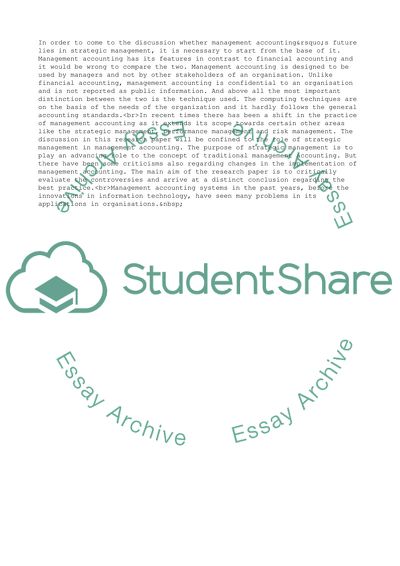Cite this document
(“Future of Strategic Management Accounting Coursework - 1”, n.d.)
Future of Strategic Management Accounting Coursework - 1. Retrieved from https://studentshare.org/management/1744715-does-future-of-management-accounting-lie-in-strategic-management-accounting
Future of Strategic Management Accounting Coursework - 1. Retrieved from https://studentshare.org/management/1744715-does-future-of-management-accounting-lie-in-strategic-management-accounting
(Future of Strategic Management Accounting Coursework - 1)
Future of Strategic Management Accounting Coursework - 1. https://studentshare.org/management/1744715-does-future-of-management-accounting-lie-in-strategic-management-accounting.
Future of Strategic Management Accounting Coursework - 1. https://studentshare.org/management/1744715-does-future-of-management-accounting-lie-in-strategic-management-accounting.
“Future of Strategic Management Accounting Coursework - 1”, n.d. https://studentshare.org/management/1744715-does-future-of-management-accounting-lie-in-strategic-management-accounting.


